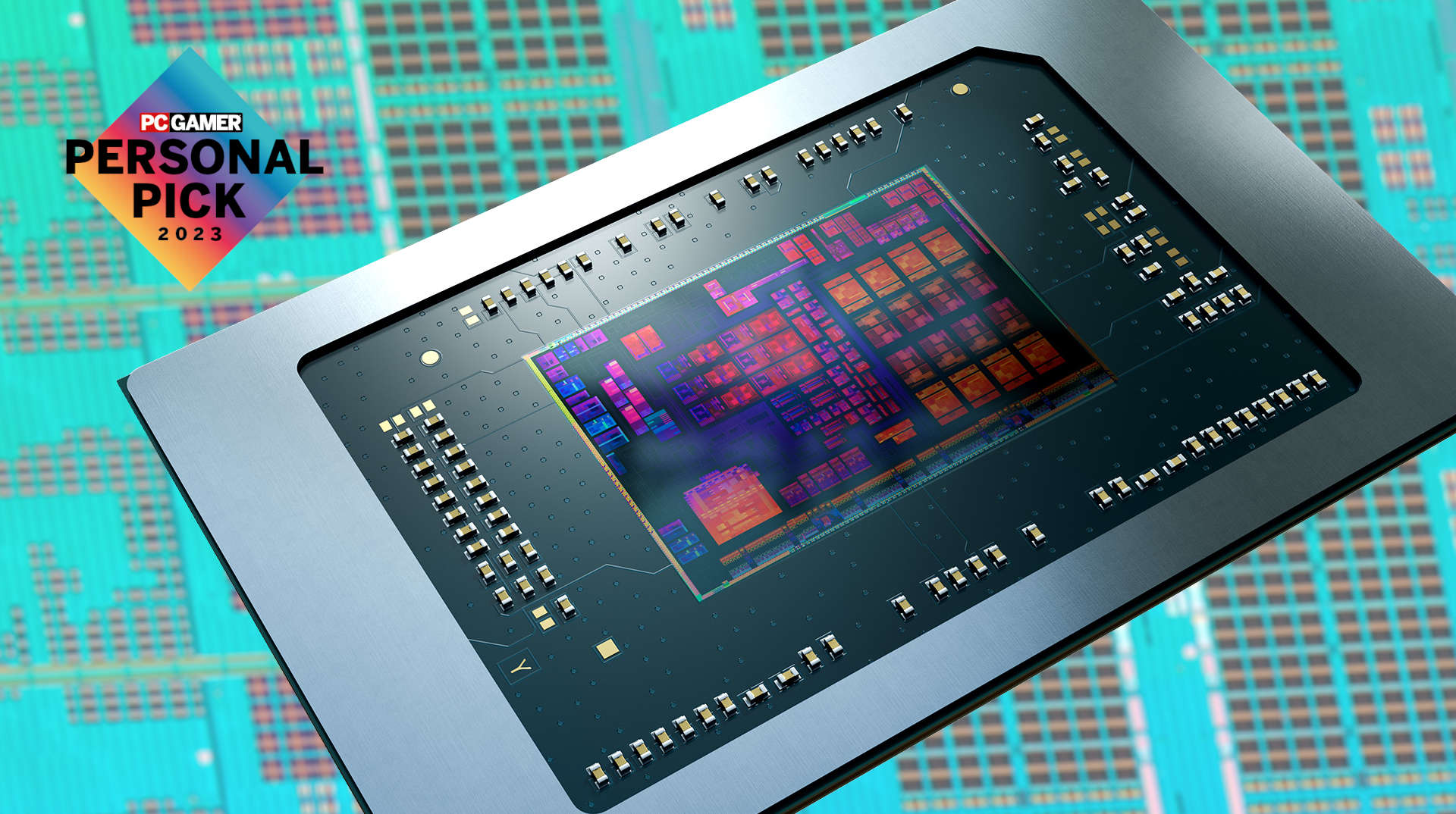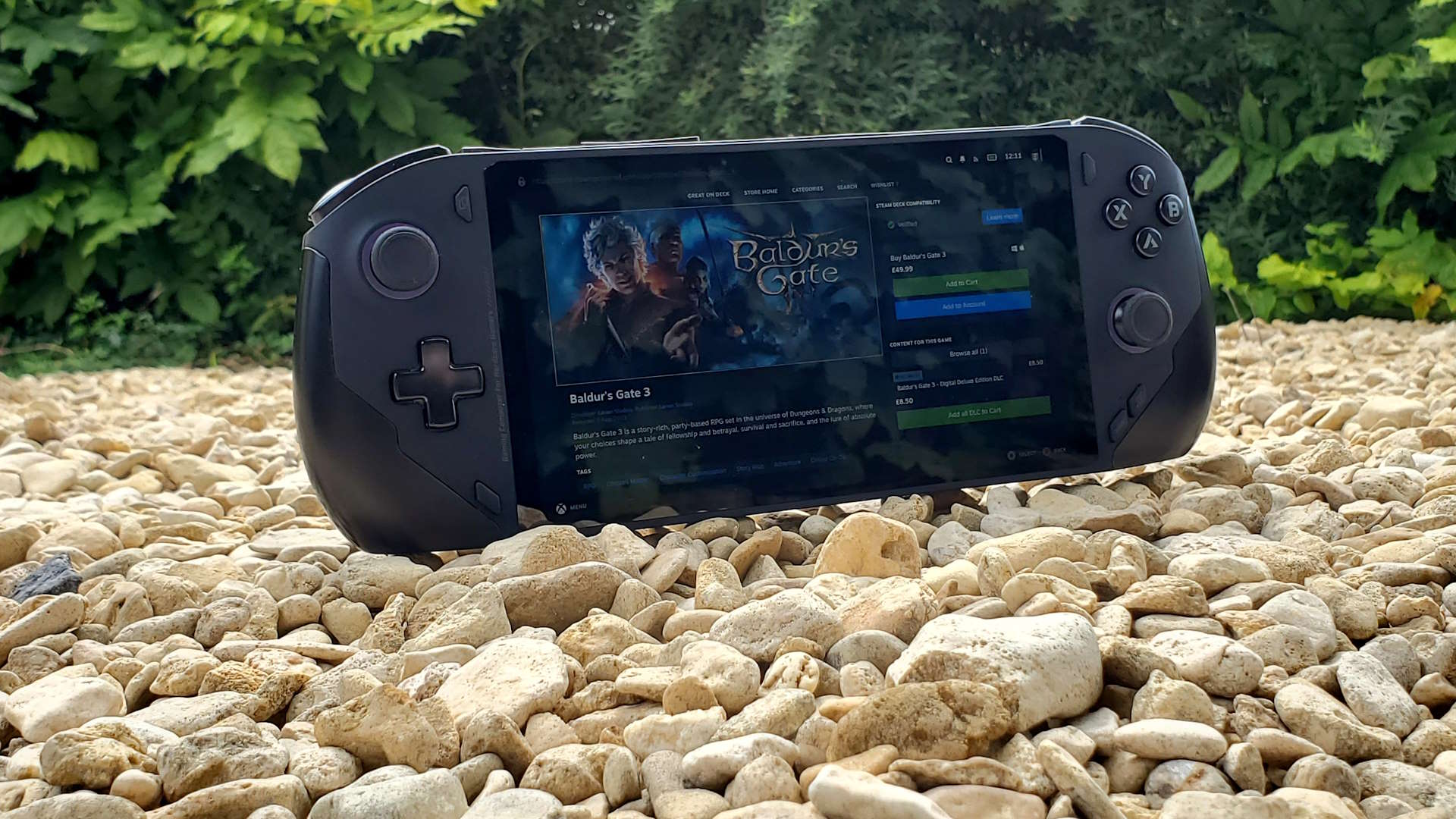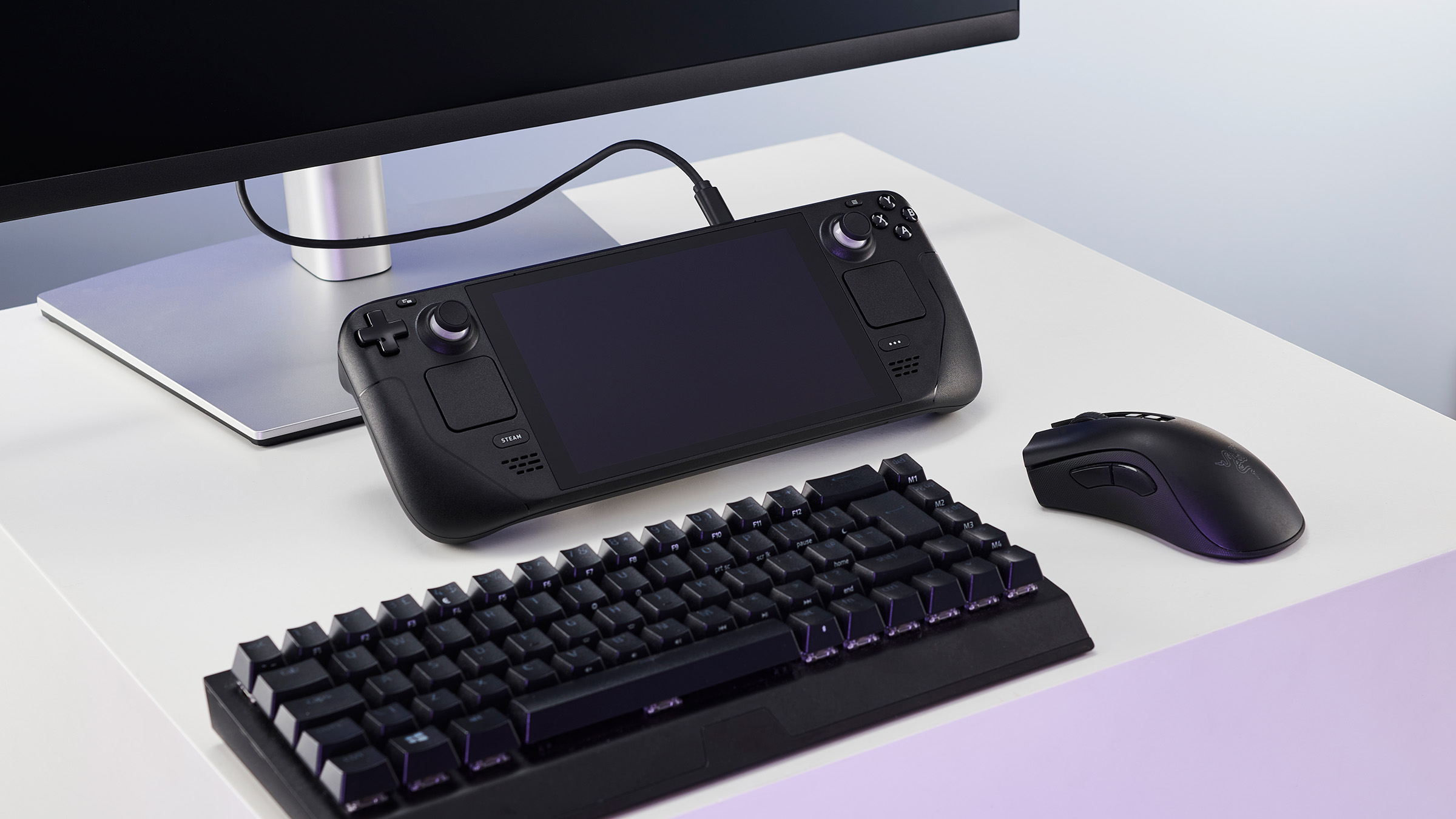
There's been lots of great new hardware this year, from gaming CPUs to awesome SSDs and outstanding OLED monitors. Equally, there's been a fair amount of disappointment, especially in the GPU sector. But for me, there's one piece of PC tech that's stood out from the rest. It doesn't boast jaw-dropping specifications nor does any one task better than anything else; you can't even buy it and put it into your PC. And yet, I think the AMD Ryzen 7 7840U is by far the best piece of hardware that's come to market this year.
It's not even AMD's most powerful or advanced laptop processor, as it sits squarely in the middle of the mobile Ryzen 7000 series, codenamed Phoenix. The 7840U eschews the multiple chiplets the top-tier mobile chips and most of the desktop Ryzen range use. It's a monolithic design (just one block of silicon), around 178 square millimetres in area.
To give you some context as to why that's important, it's roughly the same size as Intel's old Core i7 4790K CPU from 2014. That processor had four cores, eight threads, and an integrated graphics chip with 160 shaders. Thanks to modern chip manufacturing and AMD's latest architectures, the Ryzen 7 7840U boasts eight cores, 16 threads, and a GPU with 768 shaders.
There's even a dedicated AI processor in the die, made up of an array of special logic units that do scalar and vector operations commonly used in machine learning applications. That's 9 years of progress for you.
As a laptop CPU, it's almost perfect: It has more than enough cores for the majority of users, offers plenty of processing speed, and barely uses any power (maximum is around 28W). However, you may well be thinking 'yeah but it's just a mid-range laptop chip' and wonder what the fuss is all about.
In other years, you'd be right, but 2023 has been the year of the handheld PC and that's where the 7840U has found its true home. The Aokzoe A1 Pro, OneXPlayer OneXFly, and the Ayaneo Air 1S all use the little Ryzen and they're great devices. The Asus ROG Ally and Lenovo Legion Go sport AMD's Ryzen Z1 Extreme chip and while that might sound like it's a custom processor (like the one in the Steam Deck), it's simply a rebadged 7840U with the AI part disabled.

This is why I like it so much and why it's my pick of the hardware crop for 2023. As far as I'm concerned, it's just a brilliant 1080p gaming chip, especially when you consider that the entire thing uses no more than 30W, at the very most. That isn't much more than what a mid-range graphics card sucks up when doing basic desktop and video stuff.
Sure, you're not going to be running games at their maximum quality settings but on a small 7-inch screen, you're not really going to notice. And no game is going to be held back by the CPU part of the 7840U. You're actually getting better Zen 4 cores, with higher clock speeds, than you get in the PlayStation 5 and Xbox Series X.
They have a far larger GPU, of course, but they're using way more power. Oh, and the 7840U uses the RDNA 3 architecture for the graphics side of things and while it's not a major step up from the consoles' RDNA 2, every little improvement helps.

Steam Deck OLED review: Our verdict on Valve's handheld.
Best Steam Deck accessories: Get decked out.
Steam Deck battery life: What's the real battery life?
Best handheld gaming PC: What's the best travel buddy?
What I truly like about AMD's pocket powerhouse is that it really does mean you can have a gaming PC that you can carry around with you. Low-power laptops and other portable PCs have been chronically poor at gaming for years, all because of a lousy integrated GPU. Not so here and the bar for future devices has been set to a level where we're not going to return to those awful old days.
AMD isn't rushing to replace the Ryzen 7 7840U with anything better just yet, despite Intel's looming Meteor Lake. The recently announced 8840U is almost the exact same chip (the AI chip is the only updated part), but I can't wait to see what the true replacement will be like. I don't want more CPU cores, just some extra shaders so I can enjoy even better gaming on the go.
Heck, it could even tempt Microsoft and Sony into the handheld gaming market properly, and that would be something to really look forward to.







